Vladimir Putin: the 'modern tsar' who controls Russia
President Vladimir Putin regained Russian national pride and became something of a modern czar
There was no lack of outstanding national leaders in the first two decades of the 21st century with outstanding passages in command of their countries.Americans Barack Obama, George W. Bush and Donald Trump; German Angela Merkel; the Chinese Hu Jintao and Xi Jinping; Brits Tony Blair and David Cameron; Brazilians Luiz Inácio Lula da Silva and Jair Bolsonaro; Italian Silvio Berlusconi and Israeli Binyamin Netanyahu, each in their own way, imprinted their personal stamp while in power. They left important legacies in politics and history, national or international. None of them, however, had the longevity of Russian Vladimir Putin . Also none of them, possibly, had the same influence in their country, in their region and in the international scene as the president of Russia.
In command since the last day of 1999, Putin has dictated the course of wars, has shown that there are no borders for his espionage actions and has established himself as a kind of modern czar, with complete control over the fate of the Russians. In the military field, he smothered separatist Chechnya, annexed part of the Ukraine, was decisive in the Syrian war and regained national pride in the Armed Forces. In economic terms, he took advantage of the value of his country's energy industry to gain international influence.
In politics, it silenced any internal opposition, pursued opponents even abroad and created a new concept of "Russian democracy". In the technological field, Vladimir Putin's Russia was associated with strong suspicions of undue influence in political processes and even elections in other countries - particularly the United States.
Even after 20 years in the Kremlin, he never showed an intention to relinquish power. It was hard to imagine Russia without Vladimir Putin.Some of the most important news for the 21st century reached the public in the last moments of the 20th century. On December 31, 1999, then Russian President Boris Yeltsin surprised his country and the world with a televised address. What appeared to be just a Happy New Year message turned out to be a historic moment. "Today I address you for the last time as president of Russia," Yeltsin said. "I made a decision, and it was a difficult decision. Today, on the last day of this end of the century, I resign."
Putin receives command of the country from Boris Yeltsin on the last day of 1999
The Russian leader then asked "forgiveness" for not being able to fulfill the Russian people's hopes for a better life. For Russia's future, however, the most important part of his speech would come at the end. "According to the Constitution, I wrote an order transferring government responsibilities to Prime Minister Vladimir Vladimirovic Putin."
Thus was born one of the greatest political figures of the 21st century.
Just four months earlier, on August 16, Putin had been chosen by Yeltsin for the post of prime minister, replacing Sergei Stepashin. Putin took over as Russia's fourth prime minister in just a year, a sign that he, too, would probably not last long. Wrong. The new prime minister, who until then was the head of the Russian spy service FSB - the replacement for the KGB - was unknown to the public. It was only known that he was from St. Petersburg. Very quickly, however, Putin achieved high popularity and gained Yeltsin's trust. Such confidence was directly linked to a specific theme: Chechnya.
Shortly after assuming the Russian presidency, Putin visited the country's troops in Chechnya
The Russian rebel province, located in the Caucasus region, had waged a bitter war with Moscow between 1994 and 1996, which left some 50,000 dead. The conflict ended with a humiliating peace deal for Boris Yeltsin's government, which in effect gave Chechnya its dreamed-of independence - never recognized, however, by Moscow. Putin would change that reality. On October 1, 1999, a month and a half after taking office as prime minister, Russian forces would again invade Chechnya, this time to end the state of independence enjoyed by the province for nearly three years.
What caused this new Russian invasion, ignoring the 1996 peace agreement? Two events, not necessarily connected.
First, in early August a group of Chechen Islamist fighters, with no connection to the Chechnya government, invaded the Russian Republic of Dagestan, also in the Caucasus. His intention was to support local separatists. The second and decisive motive gave the government of new Prime Minister Putin the popular support needed for a new conflict in Chechnya.
In September, a series of explosions destroyed apartment buildings in the city of Buynaksk (Dagestan) and in Moscow. More than 200 people died. Popular outrage was enormous, and the Russian government blamed Chechen militants. The President of Chechnya, Alan Maskhadov, denied any involvement, as well as the armed groups, which did not change the course of events. On September 23, Putin ordered the bombardment of the province, and the invasion came in October. By the end of the year the Chechen capital, Grozny, was under siege - and would be devastated by the Russian incursion.
In 2000, Russian forces took control of Gorzny, which was destroyed.
Strong suspicions arose that the Russian security agency, FSB, was responsible for the apartment bombings in Moscow and Buynaksk - independent journalists pointed to a link between explosives and FSB agents. True or not, the attacks produced indignation among the population that justified the second - and popular - war in Chechnya. The conflict, in turn, gave Vladimir Putin the popularity that secured him the post of successor to Boris Yeltsin. So much so that, hours after Yeltsin's resignation, on the first day of 2000, Putin paid a visit to Russian troops stationed near Grozny. "This is not just a question of restoring Russia's honor and dignity," Putin told the soldiers, as reported by the American network CNN. "It's something more important than that. It's a matter of putting an end to the split of the Russian Federation.
In an article published in the New York Review of Books in February 2000, former Soviet dissident Sergei Kovalev described how he saw Russia in the early months under Vladimir Putin. "The current state of mind in Russia can be summed up in two words: '(of) war hysteria'." According to him, Putin responded to a longing of public opinion for a strong leader. "What happened was what was predicted some time ago: society is nostalgic for a 'steady hand'."
Three months after temporarily assuming the Russian presidency, at the age of 47, Putin won the presidential elections at the end of March, being elected in the first round, with 54.4% of the vote.
At least 130 hostages died after Russian action against Chechen rebels in Moscow theater in 2002
Moscow's resumption of control of Chechnya was secured in May 2000, but clashes with Islamic groups in the province continued for years. As part of this conflict, in 2002, around 40 Chechen militants took over the Dubrovka theater in Moscow and took around 900 hostages, including officials, actors, musicians and spectators who watched the musical Nord-Ost (Northeast). After three days of deadlock, security forces invaded the place after releasing a kind of gas inside the building - an unknown chemical weapon. The rebels were shot dead, and at least 130 hostages died from the gas. In 2004, in another episode that shocked the world, militants took over a school in Beslan, in Russia's North Ossetia region. The three-day siege ended with the deaths of 334 people, including 156 children.
Despite other attacks on civilians in Russia, Putin has established himself as a strong security leader. The president was ruthless with armed groups, often called "terrorists" by Moscow, and maintained Russia's territorial integrity. By ending Chechnya's quasi-independence situation and placing a regime of trust in Grozny, Putin regained national honor, shaken by the previous war, lost by Yeltsin. The president's steady hand offered the tranquility and pride that the population sought.
political control
With the end of the Soviet Union in 1991, Russia gained a new constitution. The 1993 Charter provided for presidential terms of four years, and the president could only serve two consecutive terms. Based on the new rules, Boris Yeltsin was elected in 1996. Vladimir Putin, elected in 2000, would be re-elected in 2004 for a second four-year term. Until then, the Russian leader showed no intention of changing the rules to remain in power.
Putin chose Dmitry Medvedev for the presidency, while he held the post of prime minister
The Russian government, however, is not just in the hands of the president, who is the head of state. In fact, the person responsible for the practical actions of the national administration - under the political guidelines of the president - is the head of government, that is, the prime minister - a position that served as a springboard for Putin in 1999. It was for that position, then, that Putin decided to move when he left the presidency after the 2008 election, to circumvent the constitutional requirement that prevented his election for another term.
The election in March 2008 was won by its candidate, Dmitry Medvedev, with 71.2% of the vote in the first round - a clear sign of Putin's dominance of the country. A day after taking office in May, Medvedev appointed his predecessor as the new prime minister - and the two would rule together for four years. The rules of the game started to change months later. In November, with just six months in office, Medvedev sent a proposed constitutional amendment to the Duma, the Russian parliament, extending the president's term from four to six years. The proposal was approved.
The change meant that Putin, at the end of Medvedev's four years in office, could return to office for two more terms, having fulfilled the constitutional restriction that a president could only govern for two "consecutive" terms. The difference: instead of the eight years that Putin spent in the presidency between 2000 and 2008, this time he could stay up to 12.
Upon returning to the presidency in 2012, Putin proved to be one of the most powerful Russian leaders in history.
With a precision that any engineer would be envious of, the script was rigorously followed. As if giving a small slap on the shoulder of whoever occupies his seat, Vladimir Putin took Medvedev's place in the 2012 presidential election, being elected in the first round with 63.6% of the vote. Six years later, in the 2018 election, a new victory for Putin, who was re-elected with 76.69% of the voters' preference. Considering his tenure as prime minister of Medvedev, Putin guaranteed at least 24 years as the undisputed leader of Russia.
prisons and poisonings
His power, however, did not stop there. In addition to strengthening his position, the president went to great lengths to weaken competition. Opponents, in Russia or abroad, were targets of persecution, often openly, imprisonment, for dubious reasons, and murder - these, never admitted.
In 2003, Russia's then-richest man, Mikhail Khodorkovsky, was arrested and charged with financial crimes. Khodorkovsky, controller of the oil and gas company Yukos, has always protested his innocence. According to him, his arrest and trial were political, provoked by his decision to financially help opposition parties. Convicted in a lawsuit criticized by Western governments, Khodorkovsky spent ten years in prison. After a first conviction in 2005, a retrial in 2010 once again convicted him of financial crimes. In 2013, however, Khodorkovsky was pardoned by Putin - and immediately moved abroad.
Businessman Mikhail Khodorkovsky, once the richest man in Russia, spent ten years in prison
Since 2000, Putin has created friction with members of a group of businessmen known as "oligarchs" - millionaires who made their fortune from the privatizations of Russian state-owned companies in the 1990s, promoted by Boris Yeltsin and criticized by Putin's political group for the price of sales of companies, considered low. Media entrepreneur Vladimir Gusinsky and tycoon Boris Berezovsky left Russia in 2000 after being targets of government prosecution and intimidation.
Three members of the music group Pussy Riot were arrested and sentenced to two years in prison in 2012 for presenting music critical of Vladimir Putin inside an Orthodox cathedral in Moscow - sacred territory for Putin, who approached the Russian Orthodox Church . In 2013, Russia's leading opposition activist Alexei Navalny was sentenced to five years in prison for "fraud". While appealing the decision, Navalny went free. Years later, the conviction was overturned by the courts, being later reaffirmed. While the legal battle unfolded, the opposition member was still banned from running for political office, but continued to denounce what he considered corruption within the Putin government.
The arrest of members of the Pussy Riot group exposed the authoritarianism of Vladimir Putin's government
The press has also been curtailed in a number of ways since 2000, and several independent journalists and government critics have been murdered. Among them, the reporter Anna Politkovskaya of the newspaper Novaya Gazeta, who was shot dead in 2006 - five other journalists from the daily, known for its investigative work, were also murdered.
The persecution of opponents of Vladimir Putin was never just an internal issue. The president's opponents living abroad continued to be targets of intimidation, and the involvement of Western governments in Russian disputes led to friction with Moscow. Berezovsky was granted political asylum in the UK in 2003, after he was arrested and threatened with extradition to Russia. Another who was also granted asylum in British territory in 2013 was banker Andrei Borodin - yet another oligarch prosecuted in his country for alleged financial fraud. Cases like these impacted relations between London and Moscow, as he explained to BBC News in 2013. "The Kremlin has been furious at the way that several prominent businessmen fleeing Russian justice - such as billionaire Boris Berezovsky - have been granted political asylum in Greater Britain. -Britain",
Former FSB agent Alexander Litvinenko was poisoned with polonium and died less than a month later
Intimidation became more serious with cases of poisoning of opponents or dissidents. Suspicion fell on Putin and his circle, accusations the president and his allies have always rebuffed. In November 2006, former FSB agent Alexander Litvinenko, who six years earlier had moved to London after denouncing corruption and crimes in the Moscow regime, was hospitalized. He had met two Russians at a hotel in the British capital and asked doctors to check the possibility of poisoning. Tests showed that Litvinenko had been poisoned with polonium, a radioactive element, probably ingested by him while drinking tea during the meeting. The former Russian agent died 22 days after falling ill.
In March 2018, another former agent, Sergei Skripal, was poisoned in England. Skripal and his daughter Yulia were victims of an attack on the town of Salisbury and nearly died. This time, the poisoning occurred with the nervous agent Novichock. The case has caused a new shake-up in the already difficult relations between the UK and Russia. Then Prime Minister Theresa May blamed the Russian government, saying in Parliament: "There is no alternative conclusion, other than that the Russian state is guilty." Among the retaliatory measures announced were the expulsion of 23 Russian diplomats and the suspension of all high-level contact between the two countries.
Boshirov and Petrov were singled out by the British government as responsible for poisoning in Salisbury
The Russian government has denied any involvement in the poisoning of Skripal - and the subsequent death of a British woman who accidentally came into contact with the material. The investigations, however, pointed to the actions of two Russian agents, Alexander Petrov and Ruslan Boshirov. The case led the US government to also adopt economic sanctions against Russia.
Russian poisons would hit an even more relevant target. In August 2020, oppositionist Alexei Navalny became ill during a flight between Tomsk, Siberia, and Moscow. Hastily admitted to Omsk, he was authorized by authorities two days later to be transported to Berlin, Germany. There it was proven poisoning by Novichock, the same substance used against Skripal. After a few days in an induced coma, Navalny slowly recovered and left the hospital after a month. Navalny's team accused Putin of attempted assassination, which was rebuffed by the president.
The series of poisonings revealed great sophistication of operations. Professor Mark Galeotti, an expert on Russia at the Royal United Services Institute, explained to BBC News why the practice of poisoning is being used in the country's deadly political disputes. "Poisoning has two characteristics: subtlety and theatricality. It's so subtle that you can deny it or make it very difficult to prove it. And it takes time to have an effect, there's all kinds of agony." Those behind the attacks sent a clear message: they could hit anyone, anywhere in the world, and it would be difficult to prove perpetrators.
Dealing the cards abroad
Vladimir Putin's Russia was quite different from Boris Yeltsin's in many ways, but one of them stands out: the economy. Under Yeltsin, Russians suffered the most traumatic and sudden loss of quality of life in the country's history, shortly after the breakup of the Soviet Union. Under Putin, the country got rich, mainly thanks to the oil and gas industry. Russia is the second largest oil exporter in the world, after Saudi Arabia, and the largest exporter of natural gas. In Yeltsin's time, the international price of a barrel of oil was skating around US$ 20. From 2000 onwards, it started to rise, reaching the level of US$ 100 in the early 2010s and then remaining around US $50. The price of gas tripled in the first decade of the century, and then returned to its previous level.
Russian growth has increased the international prestige of Putin, who welcomed leaders to the 2006 G8 meeting
As a result, according to data from the World Bank, Russia's Gross Domestic Product soared in the new millennium. After suffering seven consecutive declines in GDP between 1990 and 1996, including frightening drops of -14.5% in 1992 and -12.6% in 1994, the Russian economy soared. It advanced 6.4% in 1999 and 10% in 2000, growing on average 6.6% per year between 2001 and 2008.
Such an economic recovery and its strategic position as an oil and gas exporter helped Vladimir Putin at home and abroad. The president's popularity has remained high since he assumed the presidency. According to the Russian research institute Levada, the rate has already started very high, with 84% approval soon after Yeltsin's resignation in January 2000, and has remained at at least 60%, with some long periods above 80%.
The 2014 Winter Olympics was an opportunity for Putin to show the world a modern Russia
Abroad, the country's energy importance proved to be a guarantee of good relations. Exporting gas helped Putin strengthen ties between his country and China. The European Union imports around 40% of its natural gas from Russia, and such dependence has made Russia a necessary partner - even when many see it as yet another adversary. The organization of the 2014 Winter Olympics and the 2018 FIFA World Cup were exhibitions to the world of a new, confident and influential Russia - while Russian athlete doping scandals associated the country with a chronic disregard for sporting laws. At the head of a rich country, with little room for political dissent and militarily respected, Putin was even more confident to impose his voice on important international issues.
In 2013, Syria's civil war threatened to end the regime of dictator Bashar al-Assad. The Assad family regime had had close relations with Russia since the time of the Soviet Union, and Syria was one of Moscow's main allies when the civil war broke out. The strong suspicion of Assad's use of chemical weapons against rebels and the civilian population led the United States to threaten to enter the war against the regime, a possibility ruled out after the British Parliament rejected the participation of London. With that, the way was clear for a more direct participation of Russia, which since the beginning of the civil war already helped the government with political support and military assistance. In 2015, this involvement became direct, with Russia's entry into the conflict in defense of the Assad regime.
Russian bombing was crucial to the survival of the Assad regime in Syria
Russian participation, especially through aerial bombing, proved decisive. With Moscow's help, Assad was able to regain control of the city of Aleppo, after four years of fighting, and expel the so-called Islamic State from the city of Palmyra. Russian participation in the war, the first outside the former Soviet Union environment since the end of the Cold War, reinforced an axis of opposition to Western influence in the Middle East.
In contrast to the United States and Sunni Arab countries, especially Saudi Arabia, the Shiite regimes of Syria and Iran now knew they could count on Russia's help in the regional dispute. Russian involvement in Syria also sent a clear message to Europe and the United States that Moscow would act on the international stage to defend its interests.
This would be even clearer in the Russian intervention in Ukraine. Close to the Russian government, President Viktor Yanukovych suspended, at the end of 2013, the signing of an association agreement with the European Union, which led to a wave of street protests against the president. The protests turned violent and sparked a revolution against the government, which was overthrown in February 2014.
In the 2014 Russian intervention in Ukraine, the country's special forces likely aided Ukrainian separatists
Vladimir Putin's Russia reacted. After the fall of the government, a number of military personnel, probably including Russian special troops, took control of roads and strategic points in the Crimea region, part of Ukraine, but with most of the population of Russian origin. In a quick series of events, the Russian parliament authorized the use of force against Ukraine, and the Crimean authorities - already under Russian control - called a plebiscite with the options: to unite the region with Russia or keep it in Ukraine. With 97% of the vote, the first option won, and Crimea - including the strategic and autonomous port city of Sevastopol - was annexed by Russia. Despite a UN General Assembly resolution condemning Russian actions, the international community has been unable to do anything concrete.
Bombers and tanks were not the only weapons used by Putin's Russia. There were suspicions that two important popular consultations in the West in 2016 had been targets of disinformation campaigns organized by Russian interests. In June, the British went to the polls to decide whether or not the country would remain a member of the European Union - the so-called "Brexit" referendum. In November, Americans chose Donald Trump as their new president, replacing Democrat Barack Obama. In the face of suspicions on both sides of the Atlantic, fears grew that Russian interests were behind the production of false information and conspiracy theories disseminated through social networks on the internet.
During the Trump administration, suspicions of Russian interference attempts in US elections grew.
After the American elections, which gave Republican Donald Trump victory over Democrat Hillary Clinton, US authorities launched an investigation into possible Russian interference. The process was in charge of former director of the FBI (US federal police) Robert Mueller. In 2018, Mueller indicted 13 Russian citizens and three companies, including the Internet Research Agency, an arm of the Russian government. According to Mueller, the accused were aimed at "sowing discord in the US political system, including the 2016 presidential election." The group was accused of having produced material in support of Trump and attacking Clinton.
In April 2019, Mueller's final report was released, with cuts. The document contained several Russian actions to try to interfere with the 2016 presidential election. While the investigation does not conclude that Trump's campaign collaborated with Russian efforts, Mueller's report points to a willingness of campaigners from the future president to benefit from Russian stocks. A less extensive and ambitious British investigation did not identify Russian interference in the Brexit referendum, but suggested that it could have occurred. According to the report, the government did not investigate the suspicions when they could have been confirmed.
Russian-style democracy
On April 25, 2005, Vladimir Putin made his annual address to Parliament, broadcast live on television. As BBC News reported, Putin said the collapse of the Soviet Union had been "the greatest geopolitical catastrophe" of the 20th century. He pointed to the fact that the dissolution of the great power "has left tens of millions of Russians out of the Russian Federation" and he said that the future of Russia was through democracy. Putin made it clear, however, that democracy in his country would be peculiar. According to him, Russia "will decide for itself the pace, terms and conditions of the movement towards democracy".
In 2019, after two decades in power, Putin maintained his personal style and image of a judo fighter
With Putin in power, the Russian political model, with presidential and parliamentary elections but concentration of power in the hands of the head of state, came to be described by many as "managed democracy". This concept is usually applied to countries that formally maintain a democratic structure - in addition to elections, they have an independent judiciary and press - but that, in practice, live in an authoritarian reality. For at least two decades, this administration was carried out by Vladimir Putin.
In 2020, Putin took another step in adjusting the "terms and conditions" of Russian democracy. In the first months of the year, it proposed, in stages, a series of changes to the Constitution of Russia. In January, he said that the president's power would be diluted, with the handing over to Parliament of the choice of prime minister. He also said that every president would now govern by a limit of two terms -- not just two consecutive terms, as was the case in his case.
As Putin was due to step down in 2024, the president seemed to want to hand it over in a format that was more balanced with the legislature. Analysts, however, concluded that the change regarding the prime minister was not significant. Although the choice of the head of government remains in the hands of Parliament, it was more a matter of procedure than of merit - the prime minister will still have to be approved by the president, and Parliament will make its choice from the candidates presented by the head of state.
Changes to the Constitution, allowing Putin to stay in power until 2036, were approved at the polls
In March, Putin announced another measure. In the constitutional changes that he would propose to the country, an item would authorize the current president - Vladimir Putin - to run again for the presidency, as the new two-term rule would not apply only to those who were already in office. In July 2020, Russians went to the polls to say yes or no to the president. They said yes. The reforms to the Constitution were approved in plebiscite by 77.9% of the population.
With this, the Russian leader created legal conditions to remain in the Kremlin for another 12 years after the end of his fourth term in 2024 - that is, until 2036. Including his four years as prime minister, he could stay in power for 36 years, seven more than Josef Stalin. At 83 years of age, he will have spent nearly half his life at the helm of the great Russian nation. It will be another in a long list of evidence that Vladimir Putin is a leader like no other at the beginning of the 21st century. The president has restored his country to the level of a great power, capable of influencing political processes around the world. His image abroad was never the best, but Putin never insisted on being loved. He achieved his goal: that Russia returned to being respected - and, by many, feared.
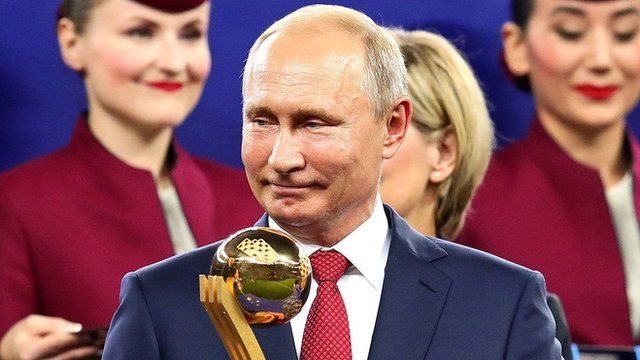
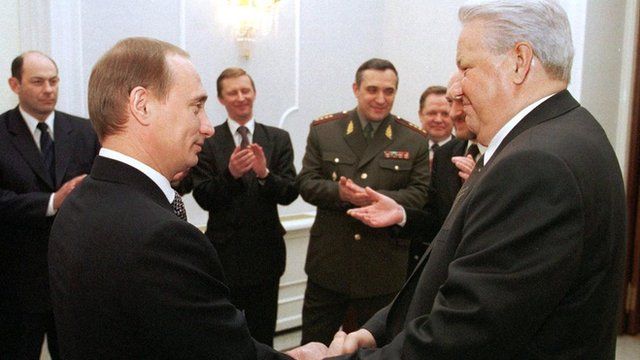
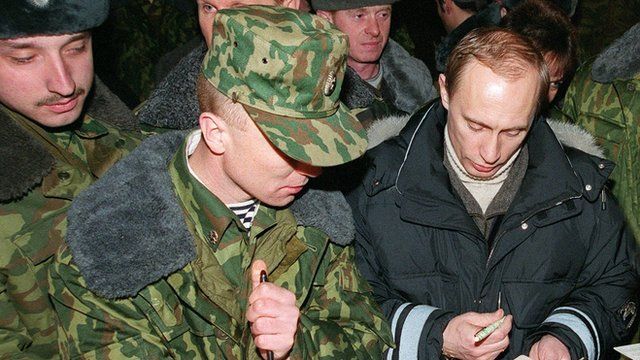
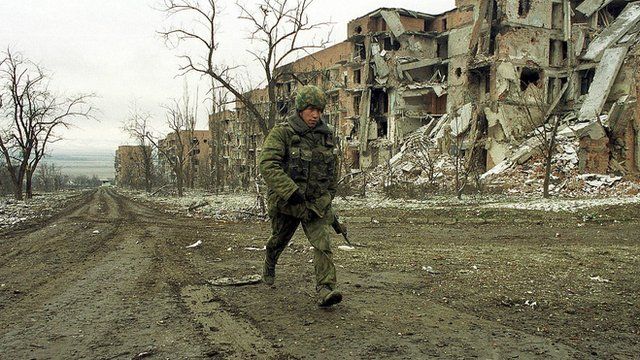
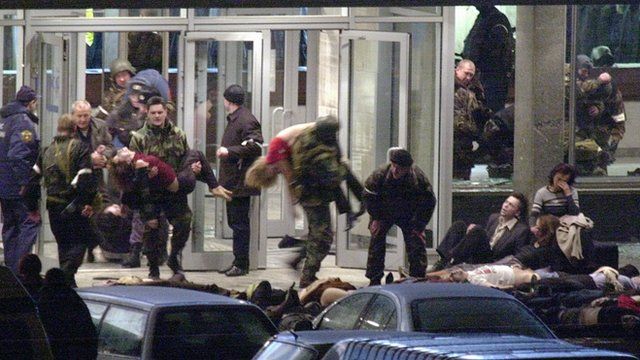
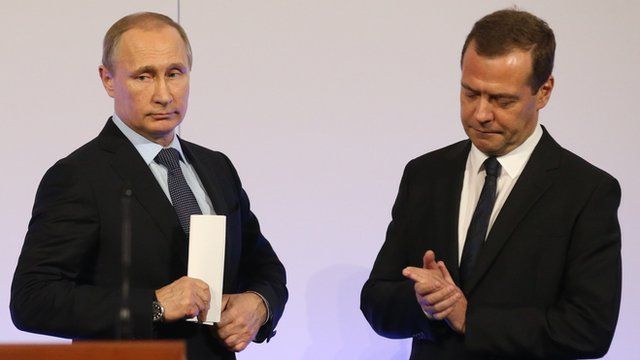
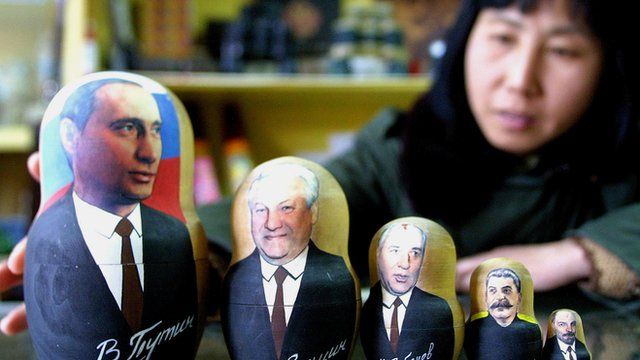
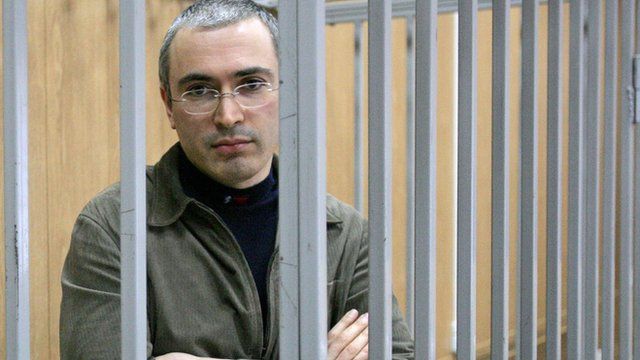
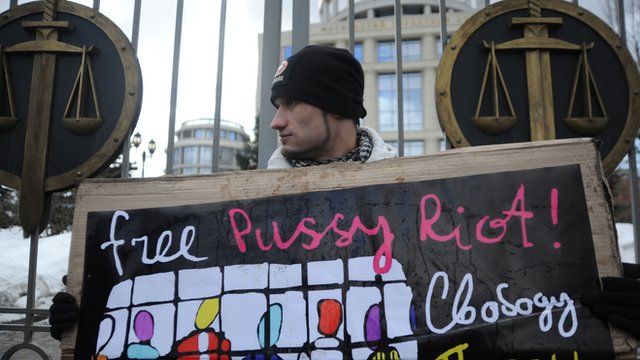
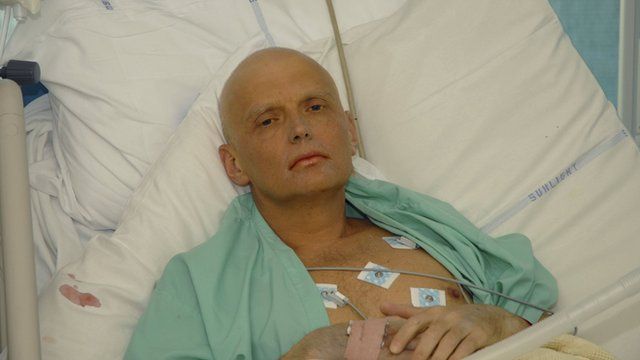
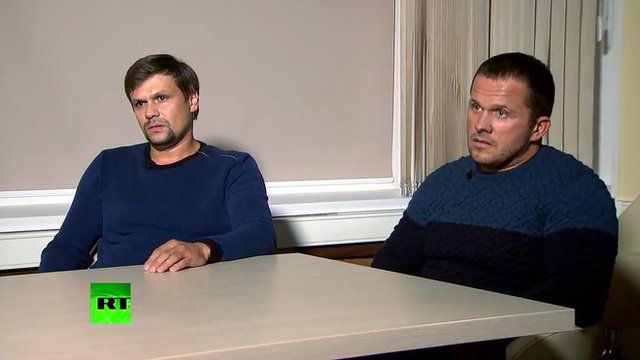
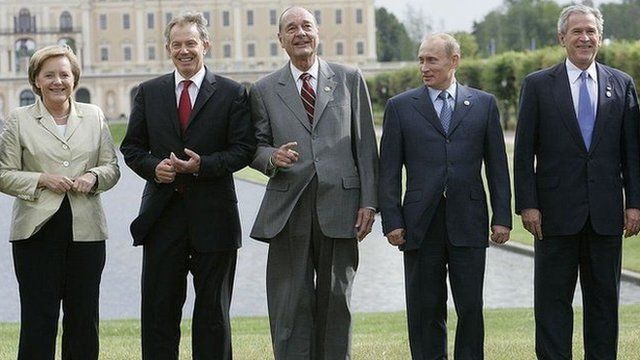
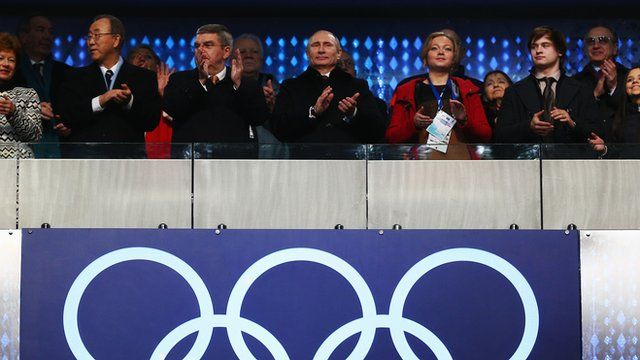
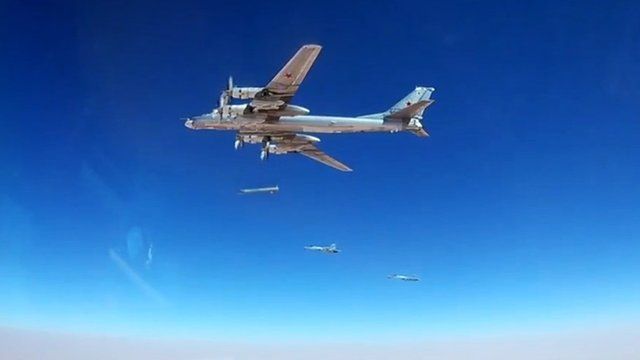
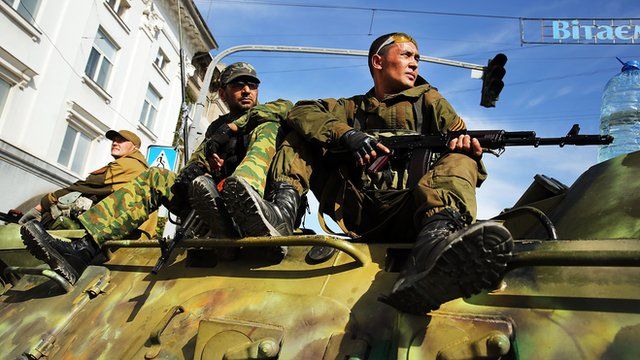
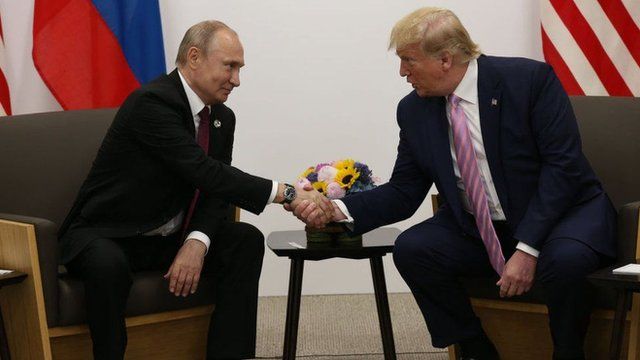
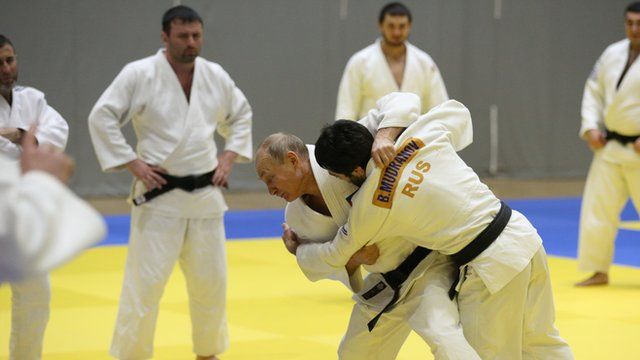
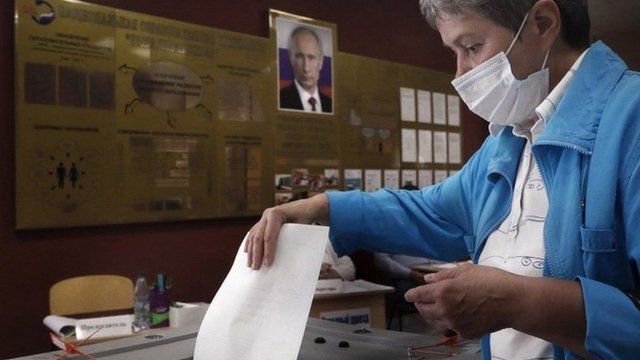

No comments:
Post a Comment